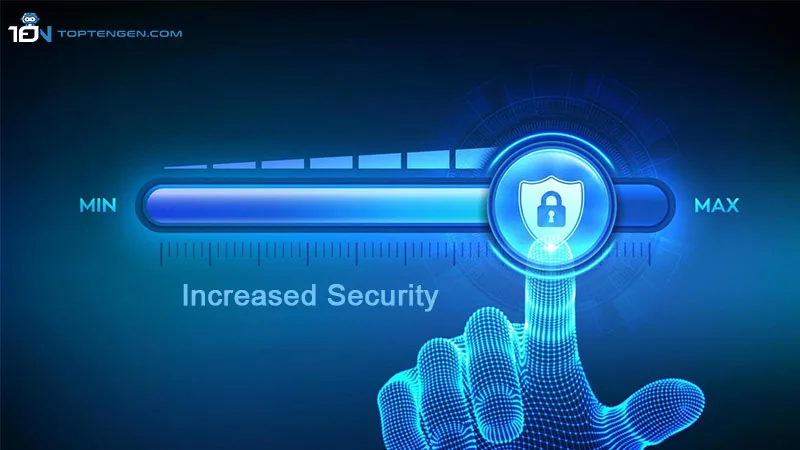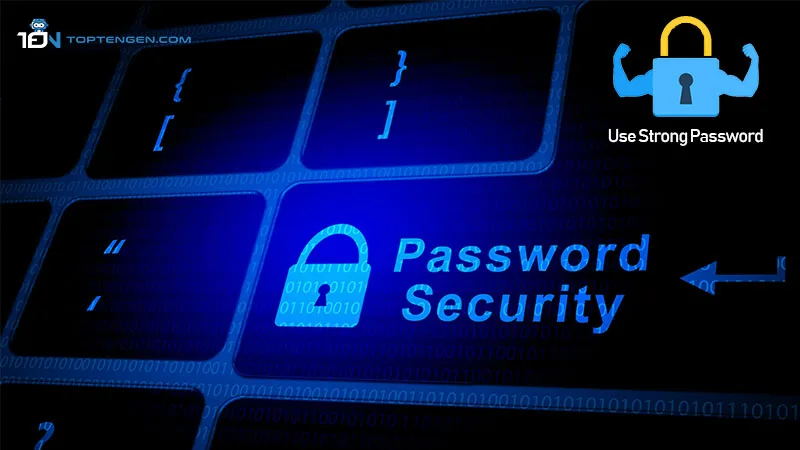Cyber-attacks are on the rise these days and contrary to popular belief that cyber criminals mostly prey on large organizations; recent studies have shown that small businesses are their biggest targets. Most small businesses lack vital resources to protect themselves from such attacks and therefore fall prey to the diabolical schemes of these evil-minded cyberbullies. Therefore, for the sake of your business, it is of vital importance that you protect your website and data from harm. To do that you need to have a robust security system in place. We are well aware of how difficult it can be to identify your security needs. Therefore, we came up with a few tips that will help you along the way.
In this article, we will tell you about 10 cybersecurity website tips for small businesses that will not only help you navigate the cyber landscape but will also keep your website from harm’s way.
Why do Small Businesses Need Cybersecurity?
Cybercriminals are comprised of some of the most sagacious minds of society. When a high IQ meets a criminal mindset, the result is mass destruction. These people are well aware of how vulnerable small businesses are. They know that due to small resources, they cannot spend a lot of money on security software and staff. This is what makes small businesses their prime targets.
Cybercriminals also know that many small businesses work with large organizations. Therefore, in order to eventually get their hands on the larger organizations, they start by preying on the small businesses working with them. Furthermore, as mentioned before, small businesses don’t have robust security measures in place, and cybercriminals can easily get their hands on the bank accounts and credit card information of the customers stored in their database. Therefore, hacking into a small business can prove to be a valuable venture for those that harbour malicious intent.
Cybersecurity Risks
Money is the driving force behind most cyberattacks. A study conducted in 2020, depicted that about 86% of data breaches are financially motivated. Let’s take a look at the risks associated with cyberattacks on small businesses:
- Financial loss due compensating customers as a result of theft of personal and financial information.
- Profit losses due to disruption in business.
- Costs of adding new security software, and systems and replacing faulty devices.
- Reputation damage and loss of customers.
10 Cybersecurity Website Tips for Small Businesses
Let’s take a look at the 10 cybersecurity website tips for small businesses that will help prevent cyberattacks and the destruction that they leave in their wake:
- Employee training
- Risk assessment
- Antivirus software
- Files back up
- Key information encryption
- Limit access to sensitive data
- Secure Wi-Fi network
- Strong password policy
- Firewall
- Reliable Web Host
1. Train Your Employees
One of the best cybersecurity website tips that we can offer you is that your first line of defence against cyber criminals should be training and educating your employees as they can leave your business vulnerable to attacks. According to a recent study on cyberattacks, one of the main causes of data breaches is employee negligence. The study pointed out that nearly half, about 47% of businesses are subjected to cyberattacks due to human error. Therefore, it is of vital importance that small businesses train their employees on cyber security measures. Businesses need to teach their staff to use strong passwords and identify phishing emails.
2. Undergo Risk Assessment
You are all aware of the phrase “nip the evil in the bud”. Therefore, in order to protect your business from the get-go, you must carry out a risk assessment. By doing this you will be able to identify the potential risks that might compromise your company’s security. By identifying and analyzing possible threats you can take measures to devise a plan to fill in security gaps. When carrying out our risk assessment, be sure to determine where and how sensitive data is stored and who has access to it.
In case your data is stored on the cloud, team up with your cloud storage provider to carry out your risk assessment. Take into account possible security breaches and establish risk levels, all the while determining how these breaches can impact your business. After completing the analysis and identifying the threats, use the information to come up with a robust security strategy. Also make sure to review as well as update your security strategy whenever you make changes in information usage and storage.
3. Opt for a Powerful Antivirus Software
In order to protect your business from spyware, viruses, phishing scams, and ransomware, make sure to opt for a robust antivirus software. Keep in mind to select an antivirus software that provides protection against malicious bugs as well as harbors technology that not only cleans your devices but also resets them to their pre-infected state. Make a mental note to always keep your antivirus software updated in order to stay clear of the latest cyber threats.
4. Regularly Back Up Your Files

Keep in mind that in case a cyberattack happens, your data could be compromised, or it might get deleted. Now if that happens, you will not be able to restore it by any means known to mankind. Therefore, to prevent this atrocity from happening, employ a backup program that will help copy your files to storage and keep them safe. Now if an attack happens you will be able to restore all your vital data from your backups.
Also, being a busy business owner, it might slip your mind to back up data. Therefore, select a backup program that will automatically backup all your files, without you having to do so. Moreover, make sure to store copies of backups offline, because sometimes when a ransom attack happens, your system suffers a major blow, that can leave these backups inaccessible.
5. Encrypt Key Information
It is of vital importance that you have an encryption program in place if your business deals with sensitive data like credit card, and bank accounts information. With encryption, you can keep all of your sensitive data safe as it alters the information and converts it into unreadable codes.
Moreover, if you have an encryption program in place, it will keep your data secure even if it gets stolen, by rendering it useless to the hacker. Due to the lack of keys to decrypt the data and decipher the information, the hacker will be left with only a scratchy head and disappointment.
6. Limit the Access to Sensitive Data
Only give limited, and thoroughly selected personal access to critical and sensitive information. By doing this you can keep sensitive information safe from bad faith actors within the company and minimize data breaches. Make a plan that thoroughly outlines which individuals have access to certain levels of information, so in case a breach does happen you will be able to identify those at fault.
7. Secure Your Wi-Fi Network

In case your business is operating on the WEP or Wired Equivalent Privacy network, it will be in your best interest to switch to WPA2 or other higher versions, as they are more secure. Moreover, you can protect your Wi-Fi network from malicious hackers by changing your router’s or wireless access point’s name also called the Service Set Identifier. You can also employ the use of a complex pre-shared key or PSK passphrase for additional security.
8. Set in Place a Strong Password Policy

Make sure that all of your employees deploy the use of strong passwords to protect all the devices, harboring sensitive information. The password should be fifteen or more characters in length and should be a mix of upper- and lower-case letters, symbols, and numbers. The more complex password you use the more difficult will it be to crack.
Also, instill in the minds of your staff that they should change passwords at regular intervals to steer clear of harm. Moreover, as an additional security measure, be sure to enable multi-factor authentication on all devices and apps.
9. Use a Firewall
The purpose of a firewall is to protect your software and hardware by deterring viruses from entering and damaging your network. With a robust firewall you can protect your business’s network traffic, both outbound and inbound. A firewall also aids in preventing hackers from gaining access to your network by blocking malicious websites. You can also program it to restrict the sharing of sensitive information and confidential emails. Also, keep in mind that you need to update your firewall on a regular basis for it to function seamlessly.
10. Get a Good Web Host

The kind of web host you opt for can also have a significant impact on the security of your business. Always go for the one that offers robust security and privacy features as your website is the place where you store sensitive customer information and a breach in that data will not only damage your information but will possibly make you shut down your business completely. Reports suggest that businesses that suffer a data breach stop operating about six months after the cyberattack.
Therefore, having a powerful web host in your arsenal will prove to be an invaluable asset in fighting off cyber criminals. One such robust web host that is renowned in the market for its security measures is SiteGround. With SiteGround you get a plethora of powerful security features like:
- SSL certificates
- Automated daily backups
- 2-factor authentication
- Real-time server monitoring system
- AI anti-bot system
- Spam protection
- Anti-hack systems
Cybersecurity Threats to Look Out For
Despite the advances in cyber technology and security features, there are still four types of cybersecurity threats that continue to plague small businesses.
- Phishing – A cyberattack that targets user through either email or other forms of communication. In this kind of attack cyber criminals employ the concept of social engineering, disguising themselves as trusted contacts to get their hands on sensitive information.
- Watering holes – In a watering hole attack, a cybercriminal tends to target a group of businesses or individuals that harbor similar interests and frequent the same websites. The attacker will infect one of those websites, which in turn will infect the businesses visiting said website.
- Drive-by Downloads – This type of cyberattack happens when a user accidentally downloads malicious software on their device. Via this kind of software, cybercriminals can spy on the business, hijack devices, and even infect the entire business network with malware.
- Malware – The word malware is a broad concept that includes spyware, malversating, worms, Trojans, and ransomware. Many businesses are brought down due to this kind of cyberattack, as they unknowingly install it on their devices and network and can’t detect it until the damage is done.
